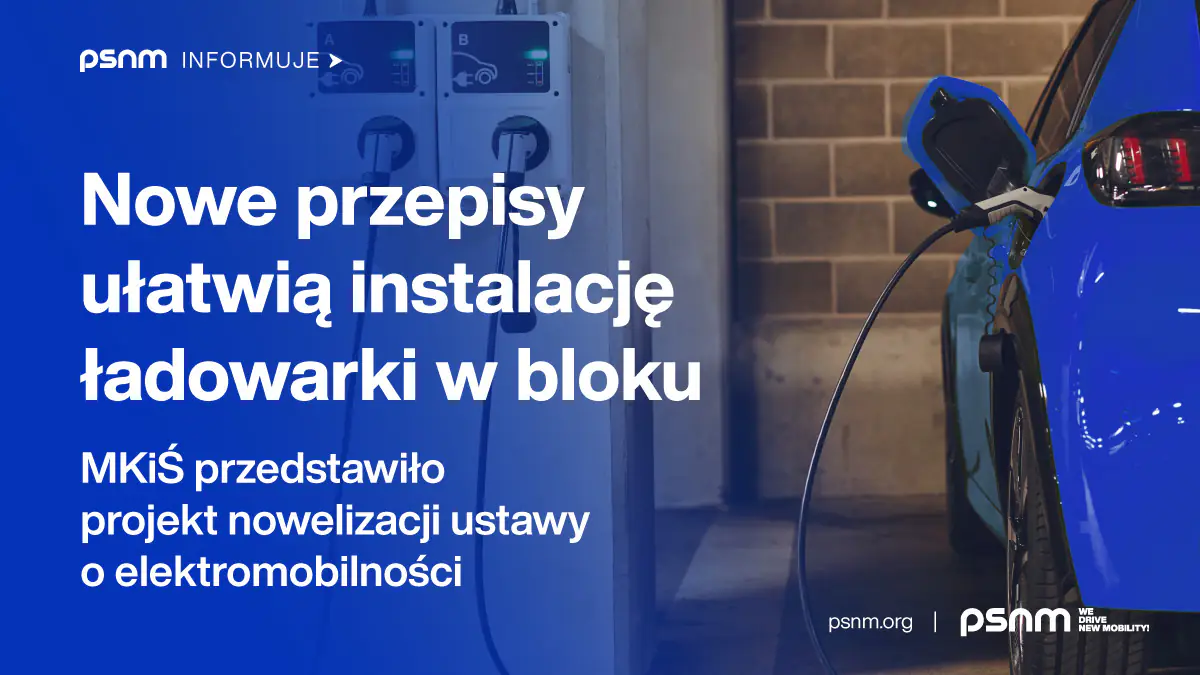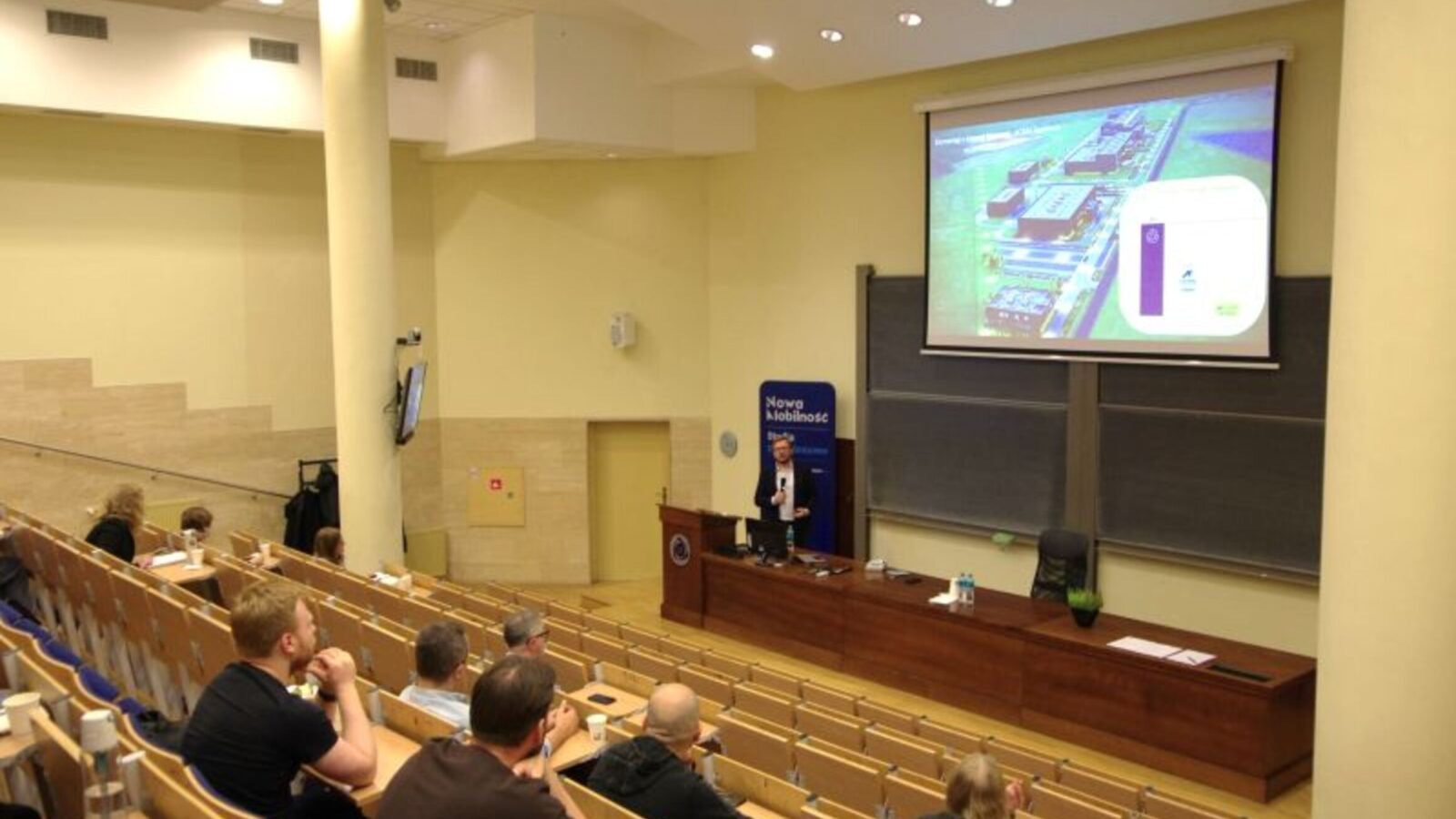-
The Ministry of Climate and Environment has presented a draft amendment to the Electromobility Act that will significantly simplify the installation of charging points in multi-family buildings. The ministry’s proposal includes, among other things, allowing residents to independently commission the necessary technical assessment if the building manager fails to take action.
-
The proposed changes are the result of the Polish Association for Sustainable Mobility’s (PSNM) involvement in the government’s deregulation initiative “SprawdzaMY”, under which amendments to the draft law were suggested.
-
The new regulations will ensure that residents of multi-family buildings gain real access to the most affordable method of charging electric vehicles, legal certainty, and clearly defined deadlines.
Currently, installing charging points in multi-family buildings in Poland remains a major challenge. Property managers often fail to comply with existing regulations or misinterpret them. Under the current procedure, after a resident who owns an apartment and a parking space submits an application, the housing cooperative or community board is required to commission an expert assessment to determine whether installation of a charging point is permissible.
“Unfortunately, due to the lack of enforcement mechanisms, there are recurring cases where the installation of chargers is blocked. Management boards often fail to commission the required assessment or refuse permission even when the expert opinion does not justify such a refusal. This results in long delays—often lasting many months—or even prevents the installation of charging points altogether. Consequently, the current, imperfect legal framework makes it difficult for residents of multi-family buildings to use electric cars, hindering the development of the e-mobility market,” says Jan Wiśniewski, Head of the Analysis Department at PSNM.
To improve this situation, PSNM has taken part in the government’s deregulation initiative “SprawdzaMY”, proposing optimizations to the existing procedure. Many of the industry’s recommendations have been taken into account — the Ministry of Climate and Environment (MKIŚ) has recently presented a draft amendment to the Electromobility and Alternative Fuels Act. The proposal grants applicants the right to commission the expert assessment themselves if the property manager fails to do so within the prescribed period (14 days according to the draft). If the submitted expert opinion confirms the technical feasibility of the installation and there are no statutory grounds for refusal, the applicant may proceed with the project after the deadline passes or in the event of an unjustified refusal. The introduction of these new provisions will significantly simplify the process of setting up private charging points in multi-family buildings and encourage Poles to switch to electric vehicles.
As part of the public consultation, PSNM submitted proposals to clarify the draft regulations to eliminate remaining legal loopholes and improve the effectiveness of the new solutions.
“We appreciate the direction of the changes proposed by the MKIŚ — they are necessary and potentially very beneficial. However, we still see room for improvement. We suggest clarifying the deadline by which the property manager must inform the applicant about commissioning the expert assessment — this should happen immediately, but no later than within three working days. The current term ‘immediately’ leaves too much room for interpretation,” explains Jan Wiśniewski from PSNM. “Another key issue is strengthening the enforcement mechanisms. As written, the law still allows situations where a property manager might obstruct or prevent the expert assessment by refusing access to the premises for inspection or measurements. Therefore, we propose introducing a clear obligation to grant access to the property and to cooperate with the experts,” he adds.
According to the EV1000 study conducted by EV Klub Polska among nearly 1,000 real electric vehicle users, almost 50% of all charging sessions take place at home. This option is both the cheapest and most convenient, making home charging a crucial factor in choosing an electric vehicle over a combustion one. The primary motivation is economic: although electric vehicles — even with government subsidies — often remain more expensive to purchase than combustion models, operating costs can quickly offset the difference. Charging at home, especially under a night-time tariff (approx. PLN 0.62/kWh), allows a compact electric car consuming 17.5 kWh/100 km to travel 100 km for about PLN 11. In contrast, a combustion vehicle using 5 liters/100 km at PLN 6 per liter costs around PLN 30 to cover the same distance. Given Poland’s average annual mileage of about 18,000 km, an electric car owner who primarily charges at home can save at least PLN 3,500 per year on energy costs alone compared to a combustion vehicle user — making EVs increasingly competitive.
The proposed legal changes align with the broader European trend of promoting electromobility. Streamlining the currently inefficient procedure for installing charging points in multi-family buildings will boost the adoption and use of electric vehicles among private users. According to PSNM, the growing demand for private charging points will also create new business opportunities for companies specializing in charger installation, infrastructure maintenance, energy consulting, and audits.



